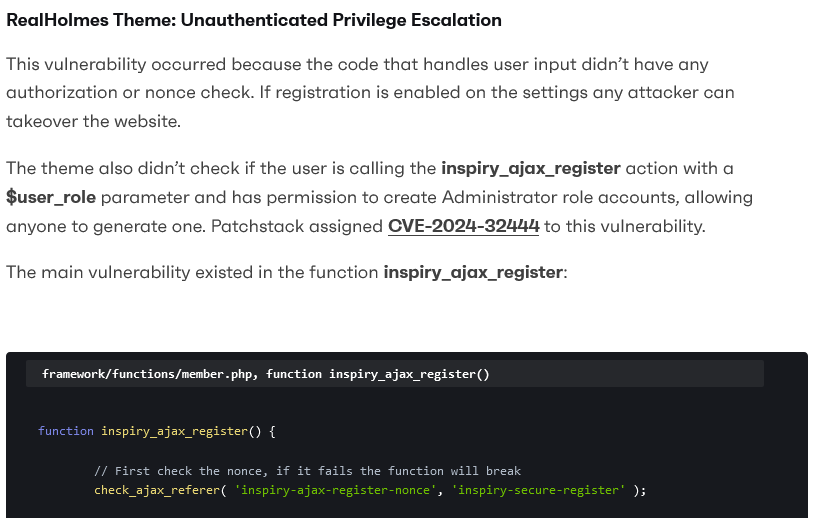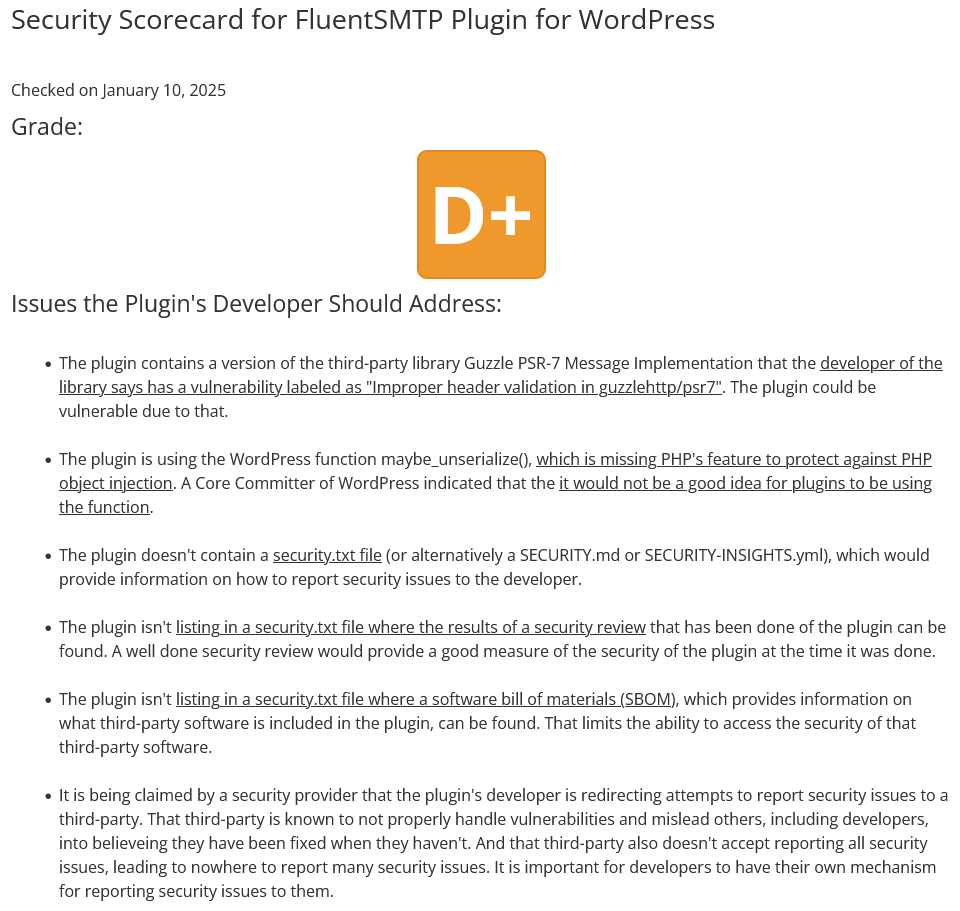WordPress Plugin Developers Directing Vulnerabilities Reports To Patchstack Doesn’t Signal They Take Security Seriously
Earlier in the week, we talked about how the developers of a security solution were failing to show the WordPress community (and their wider audience) that their scores were providing a meaningful and useful measure of security. We also talked about a WordPress security provider, Patchstack, was once again being dishonest. While preparing that latter post, we noticed they made this case for plugin developers having vulnerability reports directed away from them to Patchstack:
Having a VDP security program is a signal to your users that you take security seriously and your software is trustworthy. [Read more]

